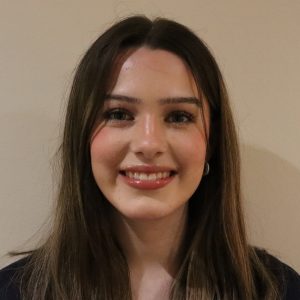“It is important to have interventions throughout a person’s life if they are at risk of committing violence – and for children, these interventions need to give them a sense they matter.”
A key theme to emerge from children in The Big Ambition was the desire to feel safe and confident in public spaces. Feeling safe in your community is an important part of a child’s wellbeing – it helps them to explore the world around them, grow in confidence and enjoy their childhood without fear or intimidation.
That’s why, as part of my podcast bringing children’s voices together with influential decision-makers, I invited Jon Yates, Executive Director of the Youth Endowment Fund, to join my Young Ambassadors Aaliya, Penelope and Emmanuel for a conversation exploring what makes young people feel safe, the drivers of youth violence, and the best ways to intervene to support children at risk.
Jon spoke about the Youth Endowment Fund’s work to prevent youth violence through community-based approaches. He said: “I’m probably most proud of our focussed deterrents programme. Violence is a problem committed by a small number of people and often driven by social dynamics – who you spend time with; the groups you are part of.
“We work with young people at risk of committing serious violence and approach them before they commit crimes to offer support such as therapy, mentors or even support with social issues like housing. Simply put, we do things to help people out from committing violence.”
A key theme Jon spoke about was the importance of timing – knowing when to step in and support a child before issues escalate. He shared that while early intervention is ideal, the signs for spotting who can be at risk is not always predictable.
“This can be hard to identify, while there are common indicators such as issues with school or behaviour, but these are not always the case with every child with these issues – they don’t always turn to violence.” Jon said.
He also spoke about perceptions of youth crime, reminding listeners that most crime is committed by adults. He did warn that some age groups are at particular risk of getting involved: “Age groups, such as 15 to 35-year-olds, are more likely to get involved in violence, so it’s important to have interventions throughout a person’s life and depending on the stage of life they are in – but for children these interventions need to give them a sense they matter.”
To support professionals, the Youth Endowment Fund has developed a toolkit for those working with young people – from teachers and youth workers to police – to understand what helps in reducing young people’s involvement in violence.
When asked what advice he would give to adults about children and young people, Jon’s advice was simple: “Spend more time with them. Talk to them. They are just like us – only younger.”
And it seems young people themselves would agree: Only 20% of young people felt people who run the country listen to what they had to say. If we are to make a better world for our children, we have to listen to their voices.
Too many children tell me they don’t always feel safe where they live. It was clear from responses to The Big Ambition how acutely aware children are of crime and violence in their neighbourhoods.
As Children’s Commissioner, I regularly hear from young people about the importance of safe community spaces where they can connect with others and take part in activities that give them a sense of purpose and belonging. Children use community spaces differently to adults, they know what feels safe and what doesn’t – and The Big Ambition revealed that young people want their voices heard in shaping the communities they live in.
They want adults to listen to them – to talk about the tough topics and help them make sense of the world. Just as in The Big Ambition, where children said they want to feel heard by politicians, I believe every child should have a voice. If we want safer communities, we must start by listening to the young people who live in them.
You can listen to The Big Conversation on Apple Podcasts, Spotify and Amazon/Audible Podcasts.
Find out more about the work of the Youth Endowment Fund online.






